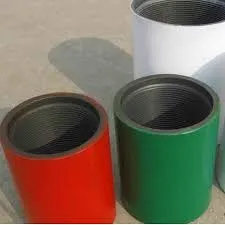- Afrikaans
- Albanian
- Amharic
- Arabic
- Armenian
- Azerbaijani
- Basque
- Belarusian
- Bengali
- Bosnian
- Bulgarian
- Catalan
- Cebuano
- Corsican
- Croatian
- Czech
- Danish
- Dutch
- English
- Esperanto
- Estonian
- Finnish
- French
- Frisian
- Galician
- Georgian
- German
- Greek
- Gujarati
- Haitian Creole
- hausa
- hawaiian
- Hebrew
- Hindi
- Miao
- Hungarian
- Icelandic
- igbo
- Indonesian
- irish
- Italian
- Japanese
- Javanese
- Kannada
- kazakh
- Khmer
- Rwandese
- Korean
- Kurdish
- Kyrgyz
- Lao
- Latin
- Latvian
- Lithuanian
- Luxembourgish
- Macedonian
- Malgashi
- Malay
- Malayalam
- Maltese
- Maori
- Marathi
- Mongolian
- Myanmar
- Nepali
- Norwegian
- Norwegian
- Occitan
- Pashto
- Persian
- Polish
- Portuguese
- Punjabi
- Romanian
- Russian
- Samoan
- Scottish Gaelic
- Serbian
- Sesotho
- Shona
- Sindhi
- Sinhala
- Slovak
- Slovenian
- Somali
- Spanish
- Sundanese
- Swahili
- Swedish
- Tagalog
- Tajik
- Tamil
- Tatar
- Telugu
- Thai
- Turkish
- Turkmen
- Ukrainian
- Urdu
- Uighur
- Uzbek
- Vietnamese
- Welsh
- Bantu
- Yiddish
- Yoruba
- Zulu
api 5ct casing coupling
Understanding API 5CT Casing Coupling A Key Component in Oil and Gas Operations
In the realm of oil and gas drilling, the terminology can often seem daunting. Among the many terms that professionals encounter, the API 5CT casing coupling stands out as a crucial element that plays an indispensable role in ensuring the efficiency and safety of drilling operations. This article aims to demystify this important component, discussing its specifications, types, applications, and relevance in the industry.
What is API 5CT?
API 5CT refers to a specification established by the American Petroleum Institute (API), which outlines the requirements for casing and tubing used in the oil and gas industry. Casing is a crucial component in well construction, providing structural integrity to the wellbore, ensuring safety, and preventing fluid migration between different geological formations. The API adopts various standards to ensure that equipment, including casing and tubing, meets the necessary performance criteria for safe and effective operation.
Casing Coupling An Overview
A casing coupling is a short length of pipe that connects two lengths of casing. It is typically threaded at both ends, allowing for a secure connection between casing pipes. The key purpose of the coupling is to maintain the structural integrity of the casing string, enabling it to withstand high pressures and environmental stresses encountered during drilling and production activities.
Casing couplings must meet rigorous API specifications to ensure reliability and safety. The API 5CT specification precisely defines the material properties, manufacturing processes, and testing requirements for couplings, thus ensuring they can handle the demanding conditions inherent in oil and gas production.
Types of Casing Couplings
Couplings can be categorized based on their specifications and applications. The two primary types are
api 5ct casing coupling

1. Regular Couplings These standard couplings are used to connect two sections of casing pipe. They are manufactured according to API specifications and are widely used across various drilling applications.
2. Specialty Couplings These couplings are designed for specific uses or environments. For example, premium couplings offer enhanced performance characteristics, such as improved resistance to corrosion and superior strength at high temperatures or pressures. They are often used in more challenging drilling conditions.
Material Considerations
The material of the casing coupling is paramount in ensuring its longevity and reliability. Most couplings are made of carbon steel and are often coated to provide additional protection against corrosion. When used in harsh environments, such as underwater or in high-temperature wells, the choice of material and coating becomes critical. It ensures not only the integrity of the coupling but also the overall safety of the drilling operation.
Importance in Drilling Operations
Casing couplings are vital for a variety of reasons
- Structural Integrity By connecting sections of casing, couplings ensure the overall strength and stability of the casing string, which is essential for the well's integrity. - Safety Ensuring that there are no leaks between casing sections minimizes the risk of formation fluid entering the wellbore, which could otherwise lead to blowouts or other dangerous situations. - Facilitating Operations Properly functioning couplings allow for efficient assembly and disassembly of the casing string, streamlining drilling operations and reducing downtime.
Conclusion
In conclusion, the API 5CT casing coupling is much more than just a connecting piece of metal; it is a critical component that upholds the safety and integrity of oil and gas drilling operations. Understanding its specifications, types, and importance can aid industry professionals in making informed decisions regarding equipment selection and maintenance. As drilling technologies advance and the demand for energy continues to grow, the role of components like casing couplings will remain indispensable in ensuring successful and safe extraction of resources. By adhering to API standards, companies can enhance operational efficiency while minimizing risks in the unpredictable world of oil and gas drilling.
-
Tubing Pup Joints: Essential Components for Oil and Gas OperationsNewsJul.10,2025
-
Pup Joints: Essential Components for Reliable Drilling OperationsNewsJul.10,2025
-
Pipe Couplings: Connecting Your World EfficientlyNewsJul.10,2025
-
Mastering Oilfield Operations with Quality Tubing and CasingNewsJul.10,2025
-
High-Quality Casing Couplings for Every NeedNewsJul.10,2025
-
Boost Your Drilling Efficiency with Premium Crossover Tools & Seating NipplesNewsJul.10,2025







